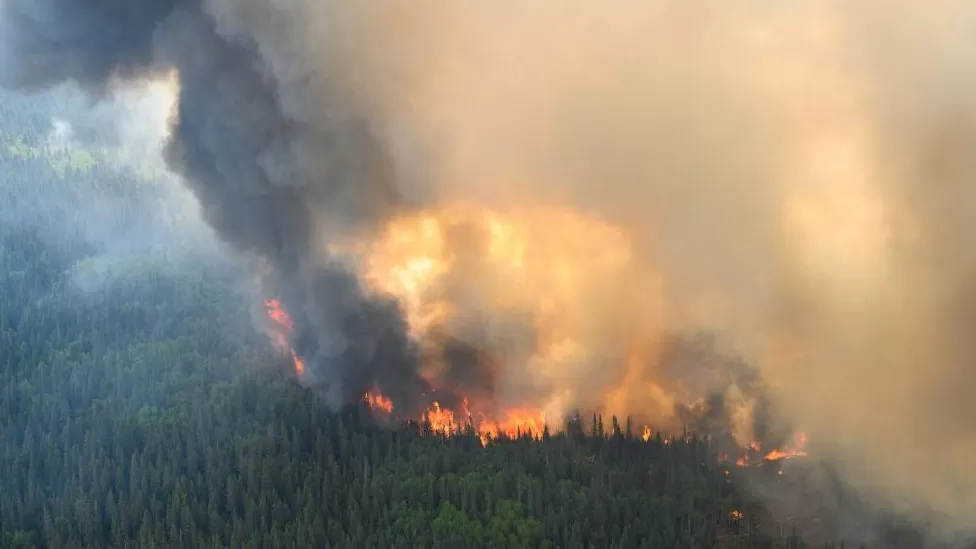Canada wildfire: Race to evacuate city as blaze approaches

20,000 residents in Yellowknife, the capital of the Northwest Territories, have until noon Friday (18:00 GMT) to evacuate.20,000 residents in Yellowknife, the capital of the Northwest Territories, have until noon Friday (18:00 GMT) to evacuate.
As of late Wednesday, the fire was within 17km of the city.
Another fire threatens Hay River.
One evacuee’s car began melting as she drove through embers to flee the town.
On Tuesday, the Northwest Territories declared a state of emergency after more than 200 wildfires broke out.
Yellowknife’s environment minister, Shane Thompson, says the fires have “taken a turn for the worse” and are now posing a real threat.
“There is no immediate danger to the city,” he said. There is a possibility that [the fire] will reach the outskirts of the city if there is no rain by the weekend.”
Staying puts you and others at risk.”
Hay River’s mayor, Kandis Jameson, said about 500 people remained in the town.
As a result of strong winds earlier this week, the fire moved 30km in a few hours, closing the town’s only two highways.
The road to Hay River is treacherous, and the town’s food and fuel supplies are running low.
Phone and internet services have also been down in the remote region.
As Lisa Mundy and her husband left town with their two children, her bumper melted, her windscreen cracked, and her car filled with smoke.
“We were driving through embers,” she said.
“[My six-year-old son] actually told me, “I don’t want to die, mommy.” In recent days, the Canadian military has coordinated airlift operations out of a number of communities in the Northwest Territories’ South Slave Region threatened by wildfires.
In the history of the territory, this is the largest airlift evacuation effort.
Evacuees have been brought south to Alberta, where there is no indication of when they will be able to return.
There are evacuation orders in effect for Fort Smith, K’atl’odeeche First Nation, Hay River, Enterprise, and Jean Marie River.
On Tuesday, Enterprise’s mayor told the CBC that the community is “90% gone” after a wildfire swept through this week.
As of Wednesday, there were nearly 1,100 active fires across Canada, the worst fire season in history.
There has been a warmer and drier spring than normal, according to experts.
As a result of climate change, hot, dry weather is likely to spark wildfires.
